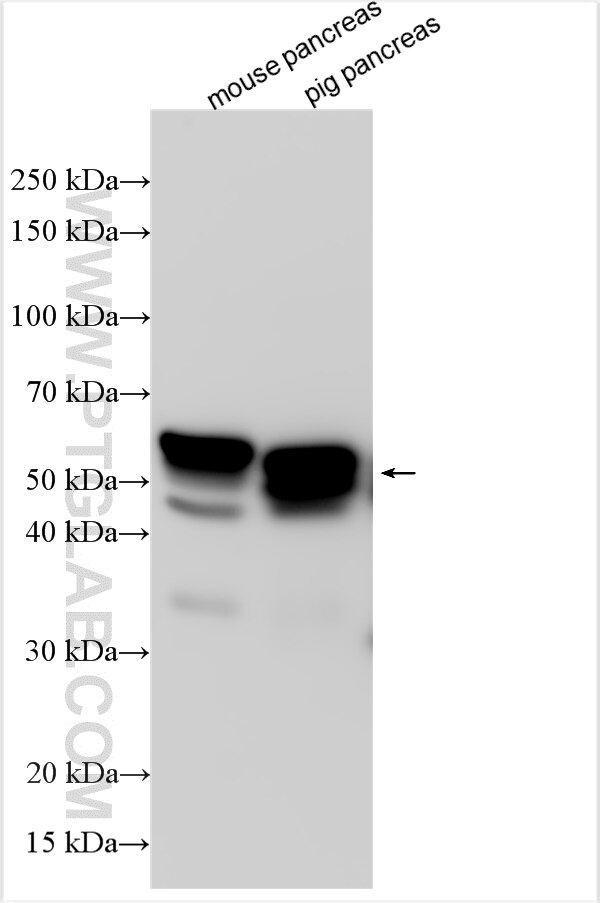Tested Applications
| Positive WB detected in | mouse pancreas tissue, pig pancreas tissue |
Recommended dilution
| Application | Dilution |
|---|---|
| Western Blot (WB) | WB : 1:5000-1:50000 |
| It is recommended that this reagent should be titrated in each testing system to obtain optimal results. | |
| Sample-dependent, Check data in validation data gallery. | |
Product Information
27341-1-AP targets PNLIPRP1 in WB, ELISA applications and shows reactivity with human samples.
| Tested Reactivity | human |
| Host / Isotype | Rabbit / IgG |
| Class | Polyclonal |
| Type | Antibody |
| Immunogen | PNLIPRP1 fusion protein Ag26341 Predict reactive species |
| Full Name | pancreatic lipase-related protein 1 |
| Calculated Molecular Weight | 467 aa, 52 kDa |
| Observed Molecular Weight | 51 kDa |
| GenBank Accession Number | BC025784 |
| Gene Symbol | PNLIPRP1 |
| Gene ID (NCBI) | 5407 |
| RRID | AB_3669594 |
| Conjugate | Unconjugated |
| Form | Liquid |
| Purification Method | Antigen affinity purification |
| UNIPROT ID | P54315 |
| Storage Buffer | PBS with 0.02% sodium azide and 50% glycerol , pH 7.3 |
| Storage Conditions | Store at -20°C. Stable for one year after shipment. Aliquoting is unnecessary for -20oC storage. 20ul sizes contain 0.1% BSA. |
Background Information
Pancreatic lipase fulfills a key function in dietary fat absorption by hydrolyzing triglycerides into diglycerides and subsequently into monoglycerides and free fatty acids. Two novel human pancreatic lipase related proteins, hPLRP1 and hPLRP2 are different in colipase dependence and lipase activity. PNLIPRP1 also known as PLRP1, functions as an inhibitor of dietary triglyceride digestion(PMID: 1379598).
Protocols
| Product Specific Protocols | |
|---|---|
| WB protocol for PNLIPRP1 antibody 27341-1-AP | Download protocol |
| Standard Protocols | |
|---|---|
| Click here to view our Standard Protocols |



